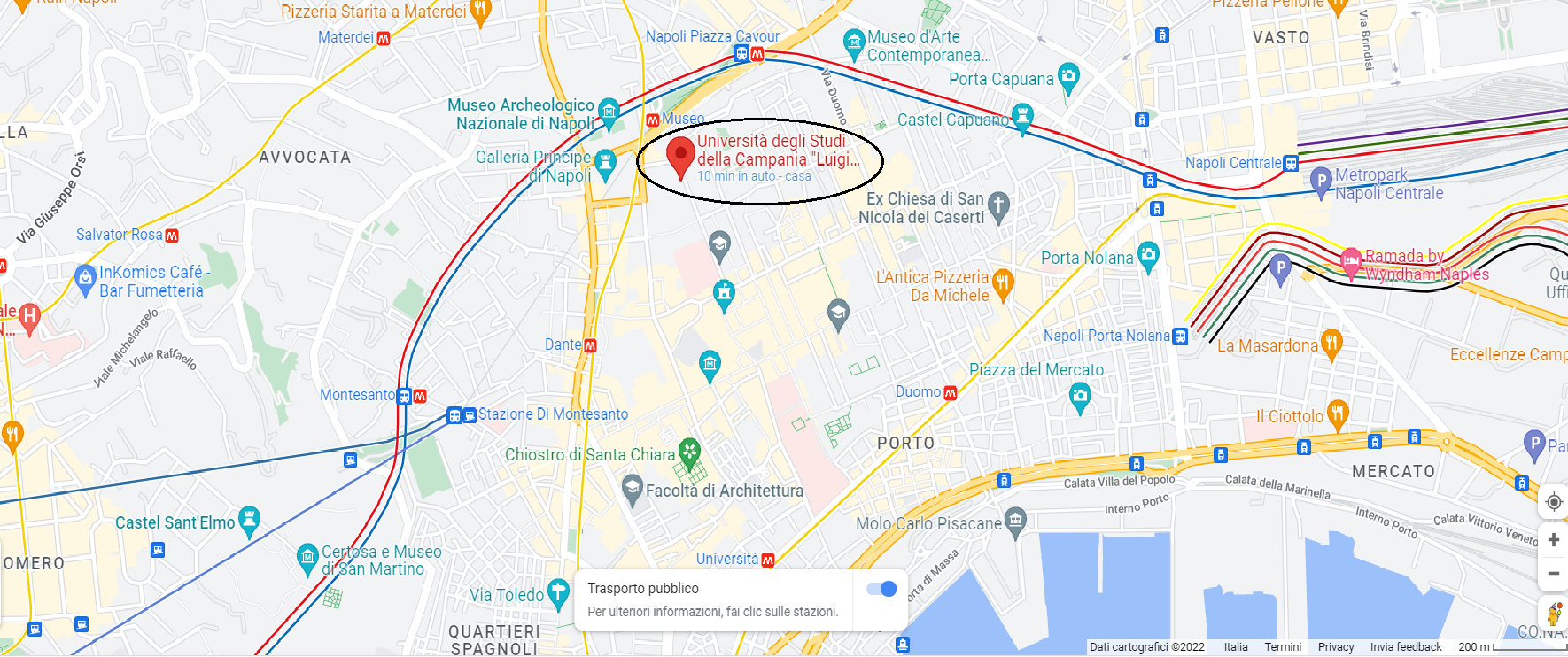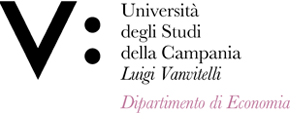
Network Committee: Paolo Barbieri, Hans Dietrich, Cristina Iannelli, Irena Kogan, Luis Ortiz, Emer Smyth, Dieter Verhaest, Maarten Wolbers
29th ANNUAL WORKSHOP September 8-10 2022
CONFERENCE ANNOUNCEMENT AND CALL FOR PAPERS
Due to the COVID-19 pandemic, the annual workshop of the European Research Network on Transitions in Youth (TIY) was held online in 2021.The next annual conference is scheduled for September 8-10 2022 as an in-person event, organized by Francesco Pastore and his team from the Università della Campania “Luigi Vanvitelli”, Naples, Italy.
The theme of this year’s workshop is:
School-to-work transitions in uncertain times – COVID-19 and digital learning
The COVID-19 pandemic has affected young people’s school-to-work transitions in manifold ways. During lockdown, standard forms of education were replaced by online and home schooling, exams were delayed or skipped, access to firm-based training was reduced due to shutdowns of businesses or firm closures, job search became less successful as job-openings were reduced, and employment services were not accessible. However, the patterns of Covid-19 pandemic-induced restrictions have varied over time and between countries. As we know from a rich body of literature, the transition process from completion of education to the attainment of a stable job varies over European countries due to different macro-economic situations, institutional settings, educational and labour market policies, and cultures.
Given the country- and time-specific responses to the pandemic, we anticipate the impact on school-to-work transitions will vary, reflecting, at least in part, cross-national variation in institutional regimes, including the educational system and the labour market.
In this year’s workshop, we invite papers on the consequences of the COVID-19 pandemic, and/or previous periods of turbulence, for the nature of the transition process. In particular, attention will be paid to the following themes:
- School-to-work-transitions in (post-)COVID-19 times
- Home schooling, remote learning in higher education and adapted workplace training during lockdown
- Vocational orientation, guidance and counselling in COVID-19 times
- COVID-19 effects on health, wellbeing and other domains of young people’s lives
- Unemployment and job search behavior at labour market entry in times of insecurity
- Changes in educational plans and attainment
- Job security, quality of job and wages among young workers
- General versus specific education and training in times of uncertainty
The list of suggested themes is neither complete nor exclusive. Theoretically driven empirical research on other aspects of youth transitions that is based on high-quality (longitudinal) data, and experimental or intervention studies, are also welcome. The committee also invites conceptual contributions, systematic reviews, and meta-analyses.
The Network Committee, therefore, cordially invites authors to submit contributions concerning the area of youth transitions, especially – but not exclusively – the analysis of effects of the COVID-19 pandemic on transitions from education to the labour market.
If you wish to present a paper at the workshop, please send an abstract (500 words) to the email address below by April 3, 2022. In keeping with our usual procedures, members of the Network Committee will assess abstracts based on their quality and relevance to the theme of the workshop. Authors will be notified of the decision regarding their paper by the end of April 2022.
The conference will take place on site in Naples, including standard presentations and discussions and some social activities. The conference fee is 160 € (which covers the venue, welcome meeting, daily coffee breaks, lunches and social dinner). The local organizers will provide advice for accommodation close to the conference venue after paper acceptance. To ensure the smooth running of the workshop, participants are requested to register by May 15, 2022.
To make papers available to workshop participants in advance, final (electronic) versions should reach the local organizers by August 15, 2022.
Prof. Steven Rivkin, University of Illinois Chicago, will deliver a keynote speech. The title of the keynote speech is to be confirmed.
Local organising team: Laura Baraldi, Claudia Cantabene, Alessandro De Iudicibus, Giuseppe Lubrano Lavadera, Antonella Rocca & Marco Stimolo
Submission of abstracts: Abstracts should be sent by e-mail to: Questo indirizzo email è protetto dagli spambots. È necessario abilitare JavaScript per vederlo.
Further and detailed info you will also find at our conference website: https://www.economia.unicampania.it/ricerca/convegni-conferenze-workshops/2-non-categorizzato/3831-transition-in-youth-2022
SECTIONS:
2. ACCEPTED PAPERS
1) Luis Ortiz-Gervasi, Carlos Palomo Lario: Expectation of early school leaving among Spanish immigrants. A process of segmented assimilation.
2) Markus Klein, Edward Sosu: School absences in secondary schooling and adolescents’ post-school destinations – Evidence from the Scottish Longitudinal Study.
3) Simon Skovgaard Jensen, Kristina Lindemann, Felix Weiss: Parental job-loss, intra-generational social mobility and children’s transitions after secondary school in Denmark.
4) Gabriela Neagu and Antonella Rocca: Intergenerational transmission of NEET status. Comparative analysis.
5) Lorenzo Navarini, Dieter Verhaest: The impact of educational attainment on overeducation and wages: a dynamic approach.
6) Cecilia Albert Verdú, Maria A. Davia: Job search methods and educational mismatch in University graduates in Spain.
7) Hans Dietrich and Alexander Patzina: The dynamic of young people’s future expectations on educational and occupational success in the turn of COVID19.
8) Seamus McGuinness, Adele Whelan, Anne Devlin: COVID-19, Unemployment, and Social Disadvantage amongst Young People in Ireland.
9) Joanna Sikora: Between financial hardships and psychological distress: socio-economic background and coping with the fallouts of COVID-19.
10) Tamás Keller: How does transparent admission standards increase the application to the college-bound upper-secondary school track⎯a field experiment.
11) Luca Bonacini: “Social background and Financial Aid Assistance: evidence from an information experiment”.
12) Silvia Kopecny, Steffen Hillmert: Educational decisions during labour-market crises: Preference changes and continuities between vocational training and higher education.
13) Antonio Acconcia, Maria Rosaria Alfano, Anna Laura Baraldi, Claudia Cantabene: "Public Certification to Fight against Illegality: Evidence on Private Investment.
14) Elisa Brini, Anna Zamberlan, Paolo Barbieri: Culture portability from origin to destination country. The gender division of domestic work among migrants in Italy.
15) Filippo Gioachin, Paolo Barbieri: More unstable and more unequal earnings? Life course instability and economic inequality over age and cohorts in Germany and the UK.
16) Blanck, Jonna M., Brzinsky-Fay Christian, Powell, Justin J.W.: “Special NEETs: Reexamining institutional effects in school-to-work transitions with a focus on young people.
17) Martin Neugebauer, Alexander Patzina, Hans Dietrich: Corona pandemic and students‘well-being.
18) Luca Bonacini, Giovanni Gallo, Fabrizio Patriarca: "Covid-19 and university students’ careers: the case of Unimore”.
19) Katarzyna Kopycka, Michał Sitek, Jędrzej Stasiowski: School-to-work transition of VET graduates in Poland. The heterogeneity of short-term effects during the 2020 pandemic.
20) Carlos Palomo Lario: Co-ethnic peer effects on educational expectations. Does ethnicity and ethnic identity of peers moderate the immigrant advantage in educational expectations?
21) Anne Devlin, Emer Smyth, Adele Bergin and Seamus McGuinness: Two Education Systems, One Island: A Comparative Analysis of Education Provision in the Republic of Ireland and Northern Ireland.
22) Jonas Detemple, Katarina Weßling, Corinna Kleinert: Girls’ and boys’ aspirations for occupations in STEM – how much does STEM in the region matter?
23) Emer Smith, The long road to university? School social composition and the transition to higher education in Ireland.
24) Papagni E., Baraldi A.L., Alfano M.R.: Ballot Structure and Political Selection. Evidence from Changes in Electoral Rules.
25) Maarten H.J. Wolbers: The sky is the limit? Stagnating and declining social mobility for the youngest generations in the Netherlands.
26) Kars van Oosterhout, Katarina Weßling: Fledging the nest – The role of family context and regional opportunities for transitions to adulthood.
27) Cristina Iannelli, Richard Breen and Adriana Duta: Social inequalities in occupational attainment: using sibling data to estimate the total effect of family of origin and the role of education.Cristina Iannelli27) Cristina Iannelli, Richard Breen and Adriana Duta: Social inequalities in occupational attainment: using sibling data to estimate the total effect of family of origin and the role of education.Social inequalities in occupational attainment: using sibling data to estimate the total effect of family of origin and the role of education.
28) Adele Whelan, Anne Devlin, Seamus McGuinness: Urban Disadvantage: Does it matter where young people live?
3. VENUE
The conference will be held at the Compound of “Sant’Andrea delle Dame”, Piazzetta Sant' Andrea delle Dame, 9, 80138 Napoli.

4. ACCOMODATION AND FEE
Participants should pay the conference fee of 160 € by bank transfer to the following account:
IT47S0303274791010000152259
BIC/SWIFT:BACRIT21495
As per reason for payment it must be indicated: ”Fee for the Conference Transition in Youth, 2022”
The complete list of suggested accommodations is provided at the link below
Click here










